Whether you want to grow your finances, get a grip on your finances, increase your financial management abilities, or just change the way you spend your money, there are the best investing books for beginners to help you.
Investing books are designed to provide us with invaluable insights to help us improve our financial lives.
These books provide readers with a fresh perspective on the importance of saving and investing. This will help readers live with financial freedom and also gain a better understanding of the financial world.
Why do you need investment books?
The connection between reading business books and earning more money as a beginner is not a mathematical formula. The number of investing books for beginners you read will motivate you to succeed.
To elaborate, here are the following examples of how investing books can help you earn more money and achieve greater business success:
- You’ll Discover Useful Techniques and Strategies
- You will keep your instinctive mind focused on your objectives.
- You’ll expand your investing vocabulary
- Your Memory Will Improve
You’ll Discover Useful Techniques and Strategies
As you read more investing books for beginners, you’ll come across new ideas and strategies for your career. Each book will provide you with a unique perspective and “lessons learned” from real-life situations.
You’ll learn practical techniques that you can put to use right away in your business. In addition, rather than having to learn everything the hard way, you’ll be able to learn from other’s mistakes and avoid their pitfalls.
You will keep your instinctive mind focused on your objectives
You can keep your mind focused on business strategies by reading about them frequently. That means your brain will be processing ideas even if you’re not doing anything else.
You’ll be more open to inspiration and more likely to come up with your next brilliant idea when you’re in this frame of mind.
You’ll expand your investing vocabulary
The connection between a large vocabulary and high earnings is unmistakable. The more you read, the more words you will encounter.
You’ll be able to articulate your points, goals, and beliefs more effectively if you have a larger vocabulary.
These enhanced communication skills will benefit you in a variety of business settings, including networking, presenting, and pitching your ideas.
Your Memory Will Improve
A great deal of research has been conducted on the effects of brain-stimulating activities. Reading is thought to be one of the most effective ways to keep your mind in shape. When compared to other forms of mental activity, lifelong readers reduced memory decline by more than 30%.
A good memory will benefit you as an entrepreneur in a variety of ways. It will help you learn faster, keep you organized, and improve your ability to socialize with new people.
List of best investing books for beginners
The following investing books for beginners are the best resources for developing the habits and attitudes that lead to wealth naturally.
These books discuss what we believe to be the most direct and certain path to financial independence. Each of these wealth-building books offers a slightly different perspective on the subject, so read them all and see which one appeals to you the most…
Here are some of the best investing books for beginners
- The Intelligent Investor by Benjamin Graham
- Rich Dad Poor Dad
- The Billionaire’s Apprentice By Anita Raghavan
- A Random Walk Down Wall Street
- The Millionaire Next Door
- The Richest Man in Babylon
- The Simple Path to Wealth
- Live Richer Challenge by Tiffany Aliche
- The Psychology of Money By Morgan Housel
- The Margin of Safety by Seth Klarman
#1. The Intelligent Investor by Benjamin Graham
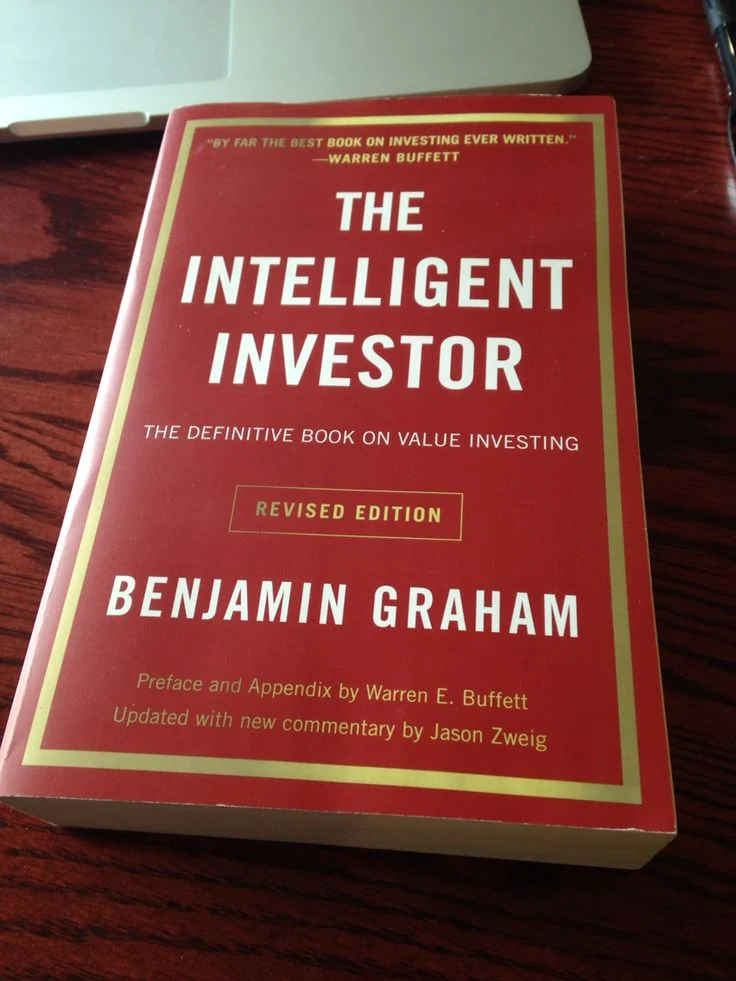
The Intelligent Investor is a book published and written by Benjamin Graham in 1949. The book has been translated into 18 languages and is regarded as one of the most influential books on investing.
The book examines how to approach investing in-depth and offers advice on how to minimize risk while still achieving returns.
Benjamin Graham provides readers with a framework for value investing in The Intelligent Investor. He promotes a patient, rational approach to stock selection and emphasizes the significance of fundamental analysis. By following Graham’s advice, investors can reduce their losses while increasing their long-term returns.
#2. Rich Dad Poor Dad
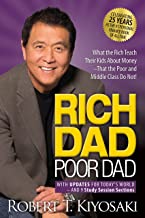
In his best-selling book “Rich Dad Poor Dad,” Robert Kiyosaki reveals what he learned from his own father and a friend’s father (who he saw as a father figure).
This book not only shows readers the difference between the wealthy and the nonwealthy in terms of their perception of money, but it also provides actionable steps for making your money work for you. It contains countless lessons for those seeking to build wealth.
#3. The Billionaire’s Apprentice By Anita Raghavan
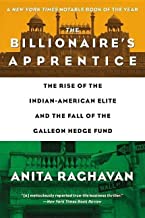
Anita Raghavan’s The Billionaire’s Apprentice tells the story of Raj Rajaratnam, a Sri Lankan immigrant who rose to become one of Wall Street’s most successful hedge fund managers.
Raghavan gives readers an inside look at Rajaratnam, who was later convicted of insider trading, through a series of in-depth interviews with Rajaratnam’s family, friends, and business associates.
#4. A Random Walk Down Wall Street
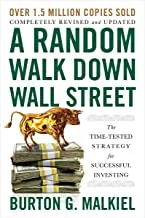
“A Random Walk Down Wall Street” delves into history, economics, market theory, and other topics to provide solid advice to investors of all ages. Burton G. Malkiel discusses the mathematics of investing in order to emphasize its significance, as well as common mistakes investors make and how to avoid them.
Malkiel has been a financial investor for a long time and is the Chemical Bank Chairman’s Professor of Economics at Princeton University. He has published over ten books on personal finance and investing, including several editions and updates to “A Random Walk Down Wall Street.”
#5. The Millionaire Next Door

The classic by Thomas Stanley, The Millionaire Next Door, is next on the list of best investing books for beginners. The book debunks common misconceptions about the wealthy. The wealthy are not who we think they are, and evidence for this is provided throughout the book.
Every weekend, the wealthy do not simply drive expensive luxury cars to the country club. According to the research in the book, the wealthy are more than likely driving an average vehicle and have spent years amassing their financial fortunes through wise investments.
Many of the millionaires interviewed for the book are business owners and professionals who live below their means in middle-class neighborhoods and lead simple lives. They have allowed compounding to occur with both their time and money, resulting in financial success.
#6. The Richest Man in Babylon
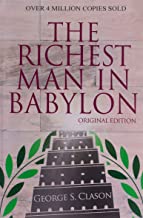
Another excellent investing book for beginners is George Clason’s The Richest Man in Babylon. This parable appears to be a simple and quick read at first glance. Most readers will be able to finish the book in under two hours.
The book, on the other hand, is dense with critical concepts and principles; don’t let the quick read detract from the invaluable takeaways.
#7. The Simple Path to Wealth
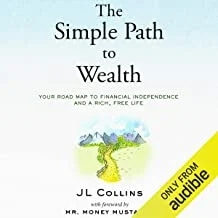
In his book “The Simple Path to Wealth,” JL Collins breaks things down. He walks readers through the process of accumulating wealth, providing financial data to back up the concepts presented in the book.
With over 4,100 five-star reviews on Amazon and over 11,000 ratings averaging 4.5 stars on Goodreads, it’s safe to say this book steals the show with its sound, easy-to-follow advice.
#8. Live Richer Challenge by Tiffany Aliche
These investing books for beginners have become extremely popular in recent years, and for good reason. This selection assists those in debt in getting their finances in order so they can begin investing and building wealth, addressing everything from a money mindset to budgeting, saving, and investing.
#9. The Psychology of Money By Morgan Housel

Morgan Housel’s book, The Psychology of Money, dives deep into our complicated relationship with money. Housel delves into the often irrational ways we think about money and how those thoughts can lead to both good and bad financial decisions through personal stories and historical examples.
We can make better decisions about how to earn, save, and spend money if we understand our psychological biases toward money.
#10. The Total Money Makeover
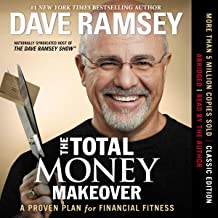
The Total Money Makeover by Dave Ramsey ranks fifth on my list of the best investment books for beginners. This book is especially beneficial to those who are struggling with consumer debt. Ramsey’s book focuses on the debt snowball, a straightforward method for repaying consumer debt that prioritizes psychology over financial optimization.
Ramsey understands that debt repayment isn’t just about numbers and optimization. There are real psychological and behavioral challenges to debt repayment, and the debt snowball does a much better job of addressing those challenges than other methods.
How to get investing books for beginners
The best way to get investing books for beginners is to purchase them online. Purchasing books online is a quick, convenient, and cost-effective alternative to visiting a bookstore.
If you know where to look, you can easily and frequently find new books, used books, textbooks, and ebooks at reasonable prices. It’s just a matter of knowing where to look for the specific types of books you require.
- Look for new books on major online marketplaces
- Look for used books on resale websites such as eBay
- Examine the websites of your preferred independent bookstores
- Use a search engine sales channel to shop around
Look for new books on major online marketplaces
If you’re trying to look for an unsealed copy of a book, major online retailers like Amazon or the Barnes and Noble website is your best bet. These stores stock millions of titles and generally have the largest selection of both hardcover and paperback books from the majority of major publishing houses.
Look for used books on resale websites such as eBay
Used books can be purchased at competitive prices through resale and consumer-to-consumer marketplace websites such as eBay and Half.com.
These websites are also excellent sources for rare and out-of-print books that may not be available from major retailers.
Examine the websites of your preferred independent bookstores
Check the website of your local indie bookstore if you’re looking for books from independent publishers or otherwise limited-edition books. Independent bookstores frequently sell books both online and in-store.
Use a search engine sales channel to shop around
Google Books, Bing Shopping, and Book Butler all compare prices on the same title from hundreds of different websites. These platforms enable you to find the best price by comparing both major retailers and smaller sellers.
Conclusion
You don’t have to read all of these investing books for beginners to start your investing journey. Yes, it would be beneficial, and you would learn a lot, but it would be a difficult task.
Choose a few that pique your interest and begin there. Then put your knowledge to use and choose a few more topics that interest you. Continue the process and watch your investing knowledge, as well as your investment portfolio, grow.
FAQs About Investing Books for Beginners
What is the best investment book of all time?
The best investment book of all time is:
- The Intelligent Investor by Benjamin Graham
- Rich Dad Poor Dad
- The Billionaire’s Apprentice By Anita Raghavan
- A Random Walk Down Wall Street
- The Millionaire Next Door
What are the best stock market books for beginners?
Here are the best stock market books for beginners:
- How to Make Money in Stocks
- When to Sell: Inside Strategies for Stock-Market Profits
- Irrational Exuberance
- Stock Investing For Dummies
How can I get best books on investing?
The following ways can help you to get investing books:
- Look for new books on major online marketplaces
- Look for used books on resale websites such as eBay
- Examine the websites of your preferred independent bookstores
- Use a search engine sales channel to shop around
Leave a Reply